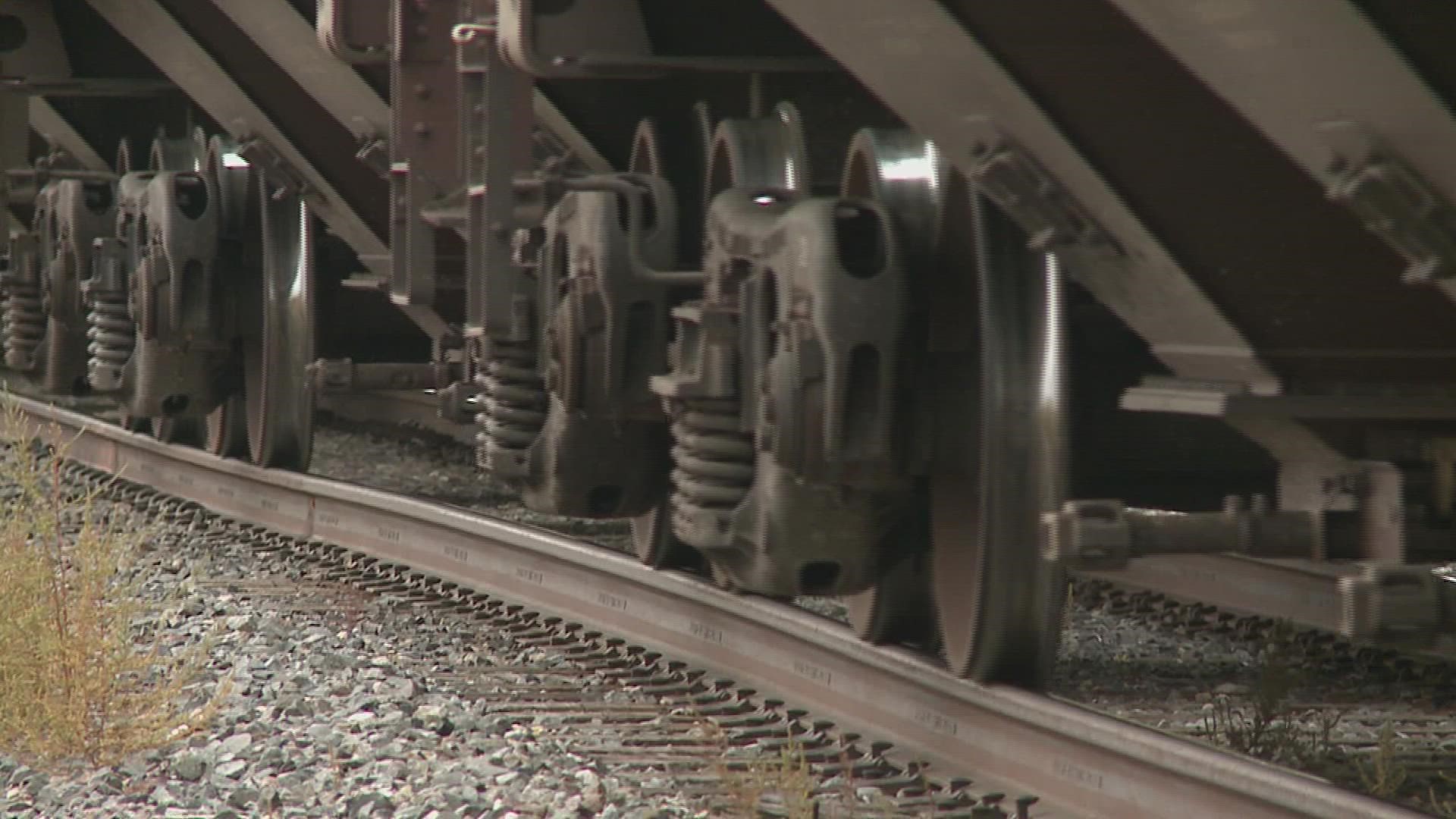INDEPENDENCE, Ohio — One of the unions representing railroaders is criticizing the working conditions at the Burlington Northern Santa Fe Railway.
The Brotherhood of Locomotive Engineers and Trainmen has around 33,000 members. Its national president, Dennis Pierce, worked as an engineer for BNSF and said things have "changed dramatically" since he was hired 45 years ago.
"Not only in crew size over the years, but just also in the way the railroad treats its employees," Pierce said. "I have never seen it this bad."
BLET is unhappy with the Hi-Viz attendance policy and that its members have been working without a new contract for over two years.
Under the Hi-Viz policy that began in February, BNSF workers are given 30 points for the rest of their careers and docked points — anywhere from two to seven — for days taken off outside of already allocated vacation days. They can earn points back by working 14 days straight, but the total number of points can never exceed 30.
Workers told News 8 it makes an already unpredictable schedule even worse and it means they're expected to be available more than 90% of the time.
Workers with the BLET and the Transportation Division of the International Association of Sheet Metal, Air, Rail and Transportation (SMART-TD) unions threatened to strike over the policy.
However, on Jan. 25, a federal judge in Fort Worth, Texas, sided with BNSF and granted the railway a temporary restraining order that blocked about 17,000 union workers from striking. He said a strike would have a drastic impact on the nation's supply chain.
"This policy has no exceptions for medical. It has no exceptions for fatigue which is routine in our industry," Pierce said. "As we say, you either go to work sick and tired or you get fired. That's really what this has come down to. The idea that people can't go tend to their family's medical issues or their own in a time of a pandemic is ludicrous to us."
A statement from the railway to News 8 reads, in part:
It is important to note that there has been no change in how much time off an employee receives. More than 50% of train crew employees work less than 40 hours a week on average. Generally, train crew employees have over 3 to 4 weeks of paid vacation and over 10 Personal Leave Days. The number of Personal Leave Days was increased by 25% this year which makes it easier for employees to take time off.
BLET and SMART-TD said upwards of 700 workers have left BNSF since the Hi-Viz policy was enacted and that is having an impact on the supply chain because there aren't enough crews to run the trains. However, BNSF told News 8 that it has more employees now than it did a year ago. The company added it's currently training 300 new employees.
"They can't hire. They can't move trains," Pierce said. "The nation's rail system is at gridlock right now and it's because of these business practices. They're all tied into this business model that we're gonna make fewer people do more work and we're not going to pay them well."
Pierce thinks the railway is trying to push for one-person crews to replace the current two-person ones. One-person crews have been a discussion point in contract negotiations.
"The railroads are adamant that they somehow think that's a solution to their manpower crisis," he said. "But they have not taken into account on any given day, there are so many unplanned events that should be planned for. There's no way that they could even utilize a one-man operation without further causing more gridlock to the rail system."
He's also frustrated that union workers have been without a new contract since 2019. The unions are advocating for better wages, health care and time off. It also wants attendance policies to be something that the unions and rail carriers can negotiate in contracts.
"These are the reasons they can't hire because this is just not a good way to treat your employees. Wages, health care and time off ... we are light years apart on what the railroads think their employees are worth to them," Pierce said. "If they would just make a reasonable offer and make these jobs more attractive, they would then help the supply chain because more people would come to work for them. So the supply chain issues that are being caused by the railroad are totally self-inflicted."
Those contract talks are currently in mediation. Pierce said the union and railway met 14 times prior to mediation and five times during mediation. He added that they have asked the Mediation Board to allow them to move forward to the next step of the Railway Labor Act.
In a statement to News 8 regarding ongoing contract negotiations, BNSF said, in part:
BNSF remains committed and eager to work toward a swift and fair resolution to the collective bargaining process. In anticipation of an agreement, BNSF continues to set aside funds for pay raises. The sooner an agreement is reached, the sooner our union-represented employees get pay increases and we can all focus on what we do best-running one of the largest freight rail networks in the world.
BNSF operates 32,500 miles of track in 28 states and three Canadian provinces. It runs an average of 1,200 trains per day, and it transports a mixture of agricultural, consumer and industrial products.

